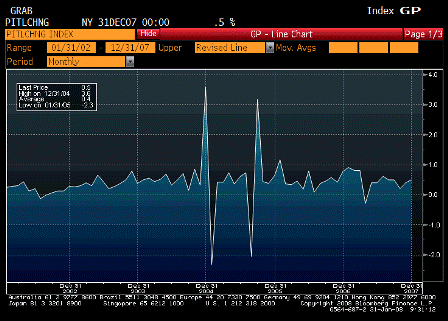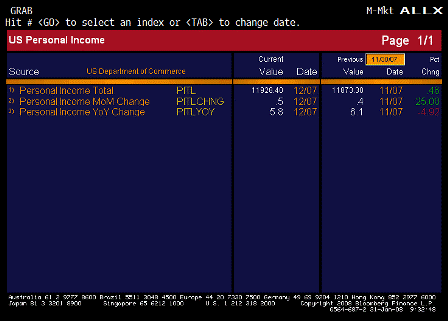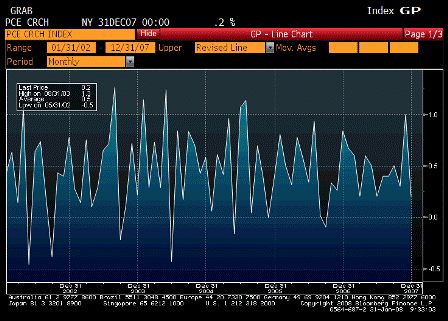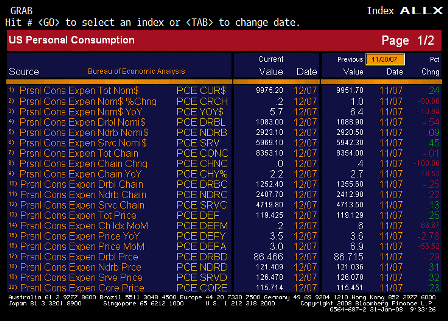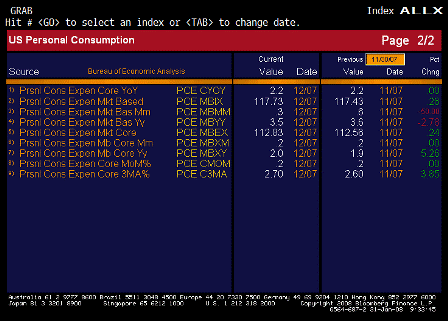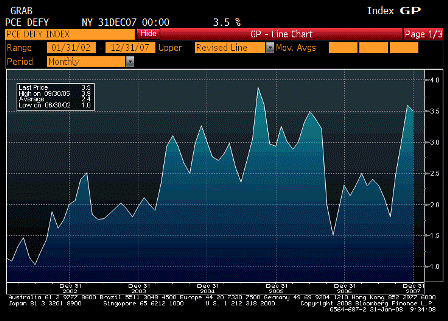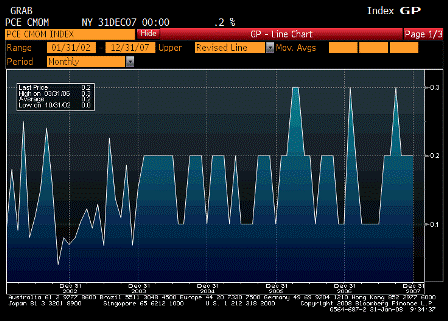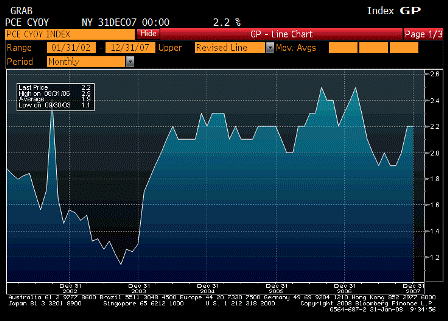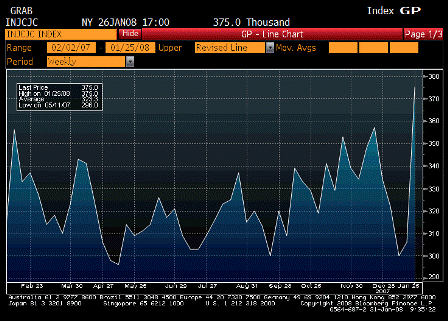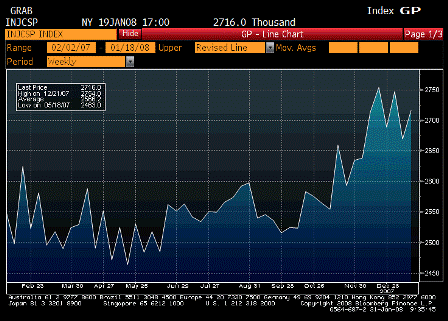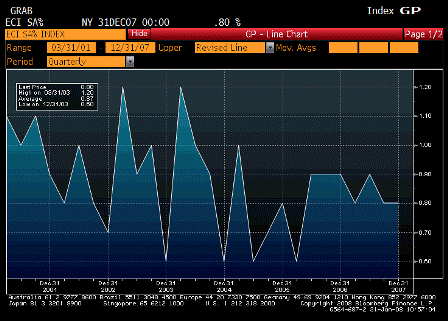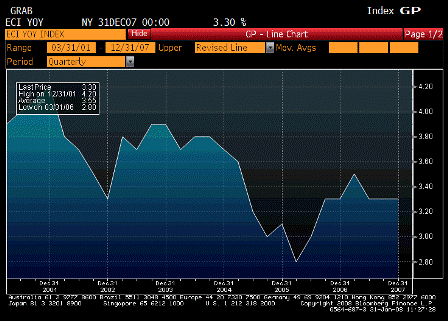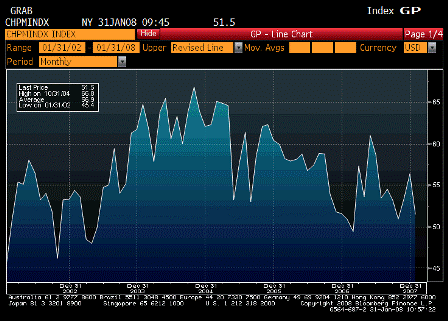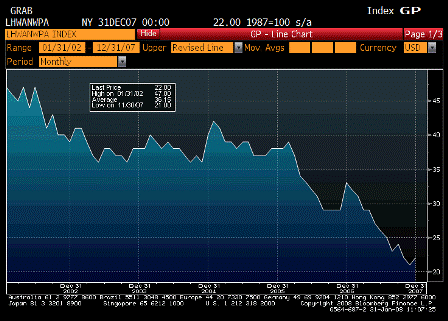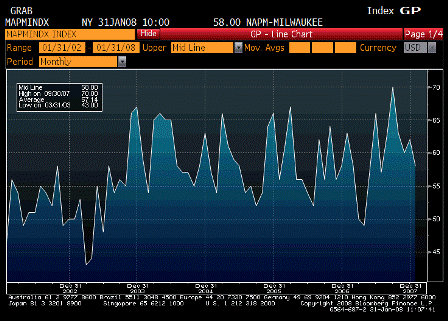Personal Income (Dec)
| Survey | 0.4% |
| Actual | 0.5% |
| Prior | 0.4% |
| Revised | n/a |
Personal Income TABLE
A bit better than expected, holding up reasonably well, as declining interest rates reduce interest income component.
Personal Spending (Dec)
| Survey | 0.1% |
| Actual | 0.2% |
| Prior | 1.1% |
| Revised | 1.0% |
Personal Spending TABLE
OK number after last month’s large increase.
Also holding up reasonably well, but trending modestly downward.
PCE Deflator YoY (Dec)
| Survey | 3.5% |
| Actual | 3.5% |
| Prior | 3.6% |
| Revised | n/a |
Too high for the Fed, but hopefully it will come down to core.
PCE Core MoM (Dec)
| Survey | 0.2% |
| Actual | 0.2% |
| Prior | 0.2% |
| Revised | n/a |
Actual was 0.23%
PCE Core YoY (Dec)
| Survey | 2.2% |
| Actual | 2.2% |
| Prior | 2.2% |
| Revised | n/a |
Fed OK with this number and should be OK next month as January 2007 was up 0.2%. After that, the 2007 numbers are 0.1%’s for a while; so, there’s a better chance of YoY increases after that.
Initial Jobless Claims (Jan 26)
| Survey | 319K |
| Actual | 375K |
| Prior | 301K |
| Revised | 306K |
Big jump up as expected by Karim.
4 week average about 325,000 likely return to pre-January trend of about 350,000 (See Karim’s report).
Not yet the stuff of recession.
Continuing Claims (Jan 19)
| Survey | 2685K |
| Actual | 2716K |
| Prior | 2672K |
| Revised | 2669K |
Moved back up some.
Also not yet the stuff of recession.
Employment Cost Index (4Q)
| Survey | 0.8% |
| Actual | 0.8% |
| Prior | 0.8% |
| Revised | n/a |
Employment Cost Index YoY
| Survey | n/a |
| Actual | 3.3% |
| Prior | 3.3% |
| Revised | n/a |
As expected, Fed is OK with this, but may be giving it too much weight, as it may be the last inflation indicator to move in this cycle.
Chicago Purchasing Manager (Jan)
| Survey | 52.0 |
| Actual | 51.5 |
| Prior | 56.6 |
| Revised | 56.4 |
Still above 50, not the stuff of recession yet.
Help Wanted Index (Dec)
| Survey | 20 |
| Actual | 22 |
| Prior | 21 |
| Revised | n/a |
Very small uptick from a very low level.
NAPM-Milwaukee (Jan)
| Survey | n/a |
| Actual | 58.0 |
| Prior | 62.0 |
| Revised | n/a |
No recession here, yet.
♥

